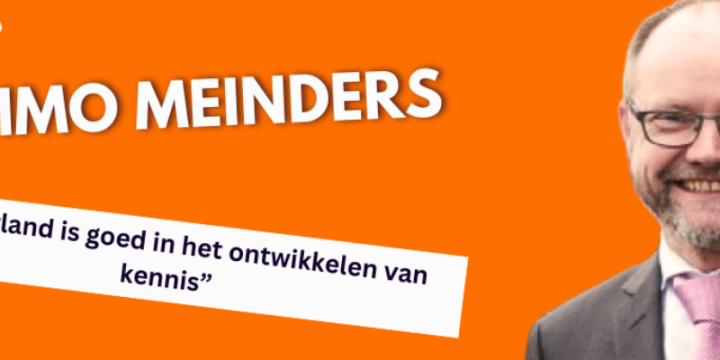The government wants to take extra steps in the coming years to further improve the Dutch start-up and scale-up business climate. That is why 5 detailed ambitions have been set for financing, talent, tech jobs, growth to scale-ups and a focus on knowledge-intensive start-ups (deep tech). The Council of Ministers has agreed to the proposal of Minister Adriaansens of Economic Affairs and Climate Policy (EZK) for this policy and has agreed to the reappointment of Constantijn van Oranje as Special Envoy.
Minister Adriaansens:
We have laid the foundations for an ambitious start-up and scale-up policy in recent years. We now want to make even better use of our innovative power. As a cabinet, we do this ourselves by directly investing hundreds of millions of euros in tech via the Deep Tech Fund, Dutch Future Fund and indirectly via National Growth Fund projects. And now is also the time to strengthen the government's efforts together with private parties, especially when it comes to market capital, growth to scale-ups and deep tech. We need to invest more together.
More financing and better access to market capital
To remain at the European top, more funding from the Netherlands itself and the EU must be made available for the scale-up phase. And the focus should be on knowledge-intensive start-ups that convert research into business, because that is where the best growth opportunities lie. Institutional investors are an indispensable link in this, but are too often lacking. The cabinet will mobilize them together with venture capital funds.
The government has also released € 38 million to continue the Early Phase Financing scheme. The so-called Seed Capital scheme of the Ministry of Economic Affairs and Climate Policy is also increasingly being used for deep tech. In addition, the minister is committed to improving and strengthening cooperation between financiers, so that starting entrepreneurs can find financing more easily.
Sufficient available talent and focus on growth markets
The government's efforts also focus on sufficient available talent. That is why the government is investigating an attractive scheme for employee participation this year. The government also aspires to a higher number of Dutch tech jobs and more start-ups that grow into scale-ups. The government will set quantitative targets for this effort. The emphasis in the new policy is on growth markets such as energy, biotechnology, circularity, quantum and photonics.
Continue longer with the temporary booster program Techleap.nl
Earlier this month, Minister Adriaansens announced that instead of stopping this year, he would continue for another 3 years with the government's temporary booster program: Techleap.nl. The Ministry of Economic Affairs and Climate Policy and other organizations (StartupDelta and subsequently Techleap.nl) took the initiative in 2015 to ensure that start-ups and scale-ups collectively in the Netherlands have better access to capital, markets, knowledge and a network to collaboration, innovation and ultimately growth of ambitious technology companies.
An annual budget of € 1 million was initially available for the booster program itself, then € 8.75 million and now a budget of € 5 million. Techleap.nl will include the government's ambition in the field of deep tech as a spearhead in its program and now also has the option of attracting private capital for the implementation of the programs. Constantijn van Oranje is again the Special Envoy until 2026.
Minister Adriaansens:
In recent years, Constantijn van Oranje has been of great value with his knowledge and experience in putting the Netherlands on the map. Techleap.nl has realized substantial improvements during that period. The Special Envoy remains ambitious to help the Dutch start-up and scale-up business climate take the next step and keep it leading in Europe.
10,000 start-ups in the Netherlands and more than 135,000 tech jobs
According to the leading Genome Ranking from 2022, the Netherlands is now in position 14 worldwide when it comes to the start-up climate, first in the European Union (before Berlin, Germany) and overall second in Europe after London (United Kingdom). There are more than 10,000 start-ups in the Netherlands, including more than 10 with a value of more than 1 billion dollars. The Dutch sector accounts for more than 135,000 tech jobs. Among the more than 10,000 start-ups are approximately 1,400 so-called deep tech companies: knowledge-intensive start-ups that combine high-quality (technological) knowledge from universities, for example, with research, development and production. Approximately 21% of Dutch start-ups grow into a scale-up. These companies develop products or offer services for, for example, the energy transition, mobility, biotechnology, nanotechnology, digital (financial) platforms, quantum, healthcare, circularity of raw materials and products.





